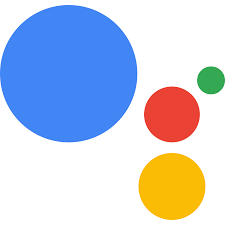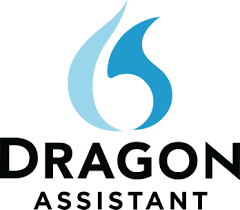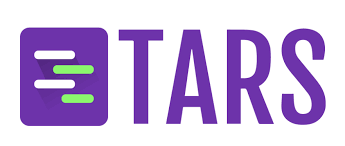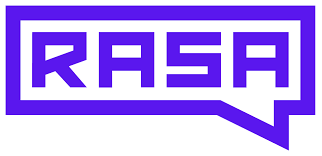Virtual assistants have become an essential part of our daily lives, helping us to stay organized, manage our schedules, and simplify our tasks. With the rise of artificial intelligence (AI) technology, virtual assistants have become even more sophisticated, offering advanced features and capabilities that make our lives easier and more productive.
In this blog, we'll explore the best virtual assistant AI tools available in the market today. From Amazon Alexa and Google Assistant to Apple Siri and Microsoft Cortana, we'll take an in-depth look at each tool's features, functionality, and capabilities. Whether you're a busy professional looking to streamline your daily tasks or just someone who wants to simplify your life, this blog will help you choose the best virtual assistant AI tool for your needs. So, let's dive in and discover the top virtual assistant AI tools that can help you live a more organized and productive life.
Amazon Alexa

Amazon Alexa is a virtual assistant powered by artificial intelligence that is designed to make people's lives easier. This voice-activated device can help users with a wide range of tasks, such as setting reminders, playing music, making phone calls, and controlling smart home devices. Alexa is constantly learning and improving, thanks to its machine learning algorithms, which enable it to understand natural language and respond to users' queries in real-time. This makes it a versatile and powerful tool that can be used by anyone, regardless of their age or technical skills.
Pros
Cons
Overall Rank
Google Assistant

Google Assistant is an AI-powered virtual assistant developed by Google that can help users with various tasks using natural language processing. With the ability to understand and respond to voice commands, Google Assistant can be used to control smart home devices, set reminders, make phone calls, send messages, and even answer general knowledge questions. The AI-powered assistant can also be personalized by users to provide them with a customized experience, with the option to choose different voices and customize the settings according to their preferences. Overall, Google Assistant is a convenient and user-friendly tool that can make day-to-day tasks easier to manage.
Pros
Cons
Overall Rank
Apple Siri

Apple Siri is a voice-controlled personal assistant that is designed to help users perform various tasks on their Apple devices. Siri uses natural language processing and machine learning to understand the user's commands and respond accordingly. Users can ask Siri to send a text message, make a phone call, set a reminder, or provide information on the weather or news, among other things. With its advanced capabilities, Siri has become an indispensable tool for many Apple users, particularly those who are constantly on the go and need a quick and easy way to access information.
Pros
Cons
Overall Rank
Microsoft Cortana

Microsoft Cortana is a virtual assistant powered by artificial intelligence that can perform a wide range of tasks such as setting reminders, answering questions, and providing weather updates. Unlike other virtual assistants, Cortana has a natural language interface that allows users to interact with it in a more conversational way. With its integration with Microsoft's suite of products, including Office and Windows, users can seamlessly use Cortana across their devices, making it a valuable productivity tool. Additionally, Cortana's skills and abilities can be expanded through third-party integrations, further enhancing its functionality.
Pros
Cons
Overall Rank
Samsung Bixby

Samsung Bixby is a virtual assistant developed by Samsung that aims to simplify the use of their devices. Bixby can perform a wide range of tasks, such as setting reminders, making calls, sending messages, and even ordering food. One of the unique features of Bixby is its ability to perform contextual tasks, which means that it can understand the context of a command and provide a relevant response. For example, if you ask Bixby to "show me pictures from last weekend," it will automatically understand that you are referring to pictures that were taken during the past weekend and show them to you. This feature makes Bixby stand out from other virtual assistants and provides a more personalized experience for users.
Pros
Cons
Overall Rank
IBM Watson Assistant

IBM Watson Assistant is an AI-powered conversational platform designed to help businesses build and deploy conversational interfaces across various channels, including websites, messaging apps, and smart devices. Watson Assistant uses natural language processing and machine learning algorithms to understand user input and provide personalized responses in real-time. With its advanced dialog capabilities, the platform can handle complex conversations and help users complete tasks more efficiently. Watson Assistant also allows businesses to train and improve the accuracy of their chatbots through feedback and analytics, enabling them to deliver a seamless and satisfying customer experience.
Pros
Cons
Overall Rank
Nuance Dragon Assistant

Nuance Dragon Assistant is an intelligent personal assistant software that uses voice recognition technology to allow users to interact with their devices hands-free. This software can understand natural language commands and can perform a variety of tasks, such as launching applications, searching the web, sending emails, scheduling appointments, and even dictating documents. The software is designed to learn the user's preferences and adapt to their speech patterns, making it a highly personalized experience. Additionally, Nuance Dragon Assistant has advanced speech-to-text capabilities, which can transcribe voice dictation with a high degree of accuracy. Overall, the software is a powerful tool for increasing productivity and convenience, particularly for those who need to multi-task or have mobility issues.
Pros
Cons
Overall Rank
Houndify

Houndify is a state-of-the-art artificial intelligence platform that offers natural language understanding and voice recognition capabilities. Developed by SoundHound Inc., Houndify allows developers to create customized voice-enabled applications that are intuitive and responsive. Its unique architecture enables seamless integration of third-party services and technologies, providing a broad range of possibilities for app developers to build interactive and intelligent voice assistants for various industries, such as healthcare, automotive, and hospitality. Houndify's cutting-edge features, including its advanced speech recognition and natural language processing algorithms, make it one of the leading AI platforms in the market.
Pros
Cons
Overall Rank
Braina

Braina is an AI-powered virtual assistant that allows users to interact with their computers using natural language. This intelligent software can perform various tasks, such as opening applications, searching the internet, setting reminders, and even controlling home automation devices, among others. It uses advanced speech recognition technology to understand and respond to voice commands accurately, making it an excellent tool for people with physical disabilities. Braina also has a powerful language translation feature that supports over 100 languages, making it useful for international users. Its user-friendly interface and flexibility make it an ideal assistant for both personal and professional use.
Pros
Cons
Overall Rank
Zoho Desk

Zoho Desk is a cloud-based help desk software that provides customer service and support to businesses of all sizes. It offers a range of features such as multi-channel support, automation, customizations, analytics, and collaboration tools to help teams manage their customer inquiries efficiently. Zoho Desk's intuitive user interface allows for easy integration with other Zoho applications and third-party tools. Additionally, it provides extensive customer insights, which helps companies personalize their support services and create a seamless customer experience. With Zoho Desk, businesses can efficiently manage their customer interactions and deliver exceptional service, improving customer satisfaction.
Pros
Cons
Overall Rank
Bold360

Bold360 is a customer engagement platform that combines the power of AI and human agents to deliver personalized experiences across different channels. With its robust features, Bold360 enables businesses to seamlessly communicate with their customers through chat, email, social media, and messaging platforms. Its AI capabilities allow for personalized and contextual conversations that enable businesses to understand and meet their customers' needs more efficiently. Bold360 also offers features like co-browsing and screen sharing, making it easier for agents to guide customers through complex processes. With its intuitive interface and easy-to-use tools, Bold360 empowers businesses to deliver exceptional customer experiences.
Pros
Cons
Overall Rank
Ada Support

Ada Support is an AI-powered chatbot platform that offers businesses the ability to automate their customer support. With its advanced natural language processing capabilities, Ada Support enables businesses to provide a personalized and efficient customer experience. Ada Support's chatbots can handle customer inquiries, provide product information, and even complete transactions. Ada Support's platform is user-friendly, and businesses can create and deploy chatbots without requiring any technical expertise. Ada Support's comprehensive analytics dashboard provides businesses with insights into customer interactions, enabling them to continually improve their customer support strategies.
Pros
Cons
Overall Rank
Tars

Tars is an AI-powered chatbot platform that provides businesses with a range of tools to enhance customer communication and engagement. Its intuitive user interface allows companies to easily design and deploy chatbots for various use cases such as customer support, lead generation, and sales. Tars offers a drag-and-drop interface, making it easy to create chatbots without requiring any programming knowledge. With Tars, businesses can also analyze their chatbot conversations, gain insights into customer behavior, and optimize their chatbot performance. Additionally, Tars offers seamless integrations with popular messaging platforms such as Facebook Messenger, WhatsApp, and Slack, allowing businesses to reach their customers on the platforms they use most.
Pros
Cons
Overall Rank
Aivo

Aivo is an artificial intelligence platform that helps businesses automate customer service, support, and sales processes. It uses advanced natural language processing and machine learning algorithms to understand and respond to customer inquiries in real-time. Aivo's conversational interface can handle a wide range of tasks, from answering simple questions to resolving complex issues, and it can seamlessly integrate with other systems and applications. With Aivo, businesses can reduce response times, increase customer satisfaction, and save time and resources.
Pros
Cons
Overall Rank
Chatfuel

Chatfuel is a user-friendly chatbot platform that allows individuals and businesses to create bots for Facebook Messenger without any coding experience. With its drag-and-drop interface, Chatfuel makes it easy to design chatbots for a variety of use cases, including customer service, lead generation, and content delivery. Additionally, the platform offers various integrations with third-party services such as Zapier, Google Sheets, and Shopify, making it possible to automate and streamline many business processes. Chatfuel also provides robust analytics and reporting features, allowing users to track engagement and optimize their chatbots over time. Overall, Chatfuel is an excellent tool for those looking to create and manage chatbots for their businesses.
Pros
Cons
Overall Rank
ManyChat

ManyChat is a popular chatbot building platform that helps businesses automate their customer communication on messaging platforms like Facebook Messenger, WhatsApp, and SMS. The platform provides an intuitive drag-and-drop interface to build chatbots without the need for coding knowledge. ManyChat offers a range of features like automated responses, personalized messages, e-commerce integration, and customer segmentation, making it a powerful tool for businesses of all sizes. With ManyChat, businesses can save time and resources by automating repetitive tasks, providing quick and personalized responses to customers, and increasing customer engagement.
Pros
Cons
Overall Rank
Dialogflow

Dialogflow is a natural language understanding platform that allows developers to create chatbots and voice assistants for various platforms such as Google Assistant, Amazon Alexa, and Facebook Messenger. It uses machine learning and AI to enable the chatbots to understand and respond to user requests in a natural language format. The platform is user-friendly and provides an easy-to-use interface for developers to create chatbots with a wide range of features such as custom responses, rich messages, and webhook integrations. Dialogflow is an ideal solution for businesses and developers who want to create intelligent chatbots with a high level of accuracy and flexibility.
Pros
Cons
Overall Rank
Rasa

Rasa is an open-source framework for building conversational AI assistants. With Rasa, developers can create intelligent chatbots and voice assistants that can understand and respond to natural language queries. What makes Rasa unique is its focus on customizability and flexibility. Developers have complete control over the dialogue management, allowing them to create more complex and personalized conversations. Additionally, Rasa offers a rich set of tools for training, testing, and evaluating models, making it easier to build high-performing conversational AI applications.
Pros
Cons
Overall Rank
Wit.ai

Wit.ai is a natural language processing (NLP) platform that enables developers to integrate conversational interfaces and chatbots into their applications easily. The platform's primary feature is its ability to analyze and understand human language, making it an excellent tool for creating AI-powered chatbots that can communicate with people in natural language. With its easy-to-use interface, Wit.ai enables developers to build chatbots quickly and efficiently, and it provides a range of tools to help them fine-tune the bot's language comprehension and conversational abilities. Additionally, Wit.ai is a flexible platform that can be integrated with many popular messaging channels, making it an ideal choice for businesses that want to engage with customers through chat.
Pros
Cons
Overall Rank
In conclusion, virtual assistant AI tools have revolutionized the way we work and live. From managing our daily tasks to simplifying complex processes, these tools have made our lives easier and more productive. With the advancement of technology, virtual assistants have become more sophisticated and intelligent, enabling them to understand and respond to natural language commands with accuracy. There are numerous virtual assistant AI tools available in the market, each with its unique features and capabilities. Some of the best virtual assistant AI tools include Amazon Alexa, Google Assistant, Microsoft Cortana, Apple Siri, and IBM Watson. These tools offer a range of functionalities, from setting reminders and scheduling appointments to controlling smart home devices and conducting research. In conclusion, virtual assistant AI tools have become an essential part of our lives, helping us to save time and increase productivity. As the technology continues to evolve, we can expect even more advanced features and capabilities from these tools in the future. Whether you're a busy professional or just looking to simplify your daily tasks, a virtual assistant AI tool is definitely worth considering.
